
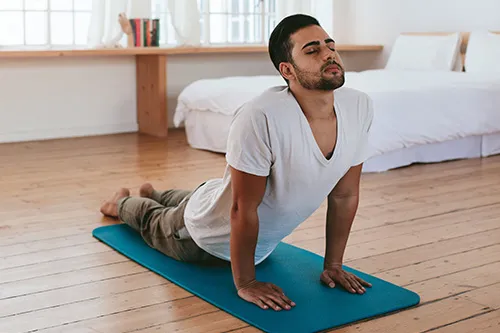
Did you know that approximately 20 million Americans suffer with thyroid disorders? Women more than men.
There is probably not a cell in your body that isn’t affected by your thyroid, a little butterfly-shaped gland at the base of your throat. Though it may be little, it is definitely fierce!
The thyroid gland produces hormones that control metabolism (that thing people are always saying makes them fat), muscle and digestive function, bone maintenance, and brain development.
That’s a lot!
Which is exactly why we want to talk about ways therapeutic yoga can help people who suffer from problems with an underactive or overactive thyroid.
[CTA-DEFAULT]
In the meantime, I’ll show you some yoga poses that positively impact your thyroid function!
One of the key benefits of practicing shoulder stand is it brings increased blood flow to the thyroid. Researchers believe circulation to the thyroid gland (or lack of) can play a huge role in whether it is working properly or not.
Not to mention, inversion poses increase blood flow to the heart and brain as well!
Be mindful of how you feel in this pose, and do not turn your head from side to side. Head and neck should remain in neutral position to prevent injury.
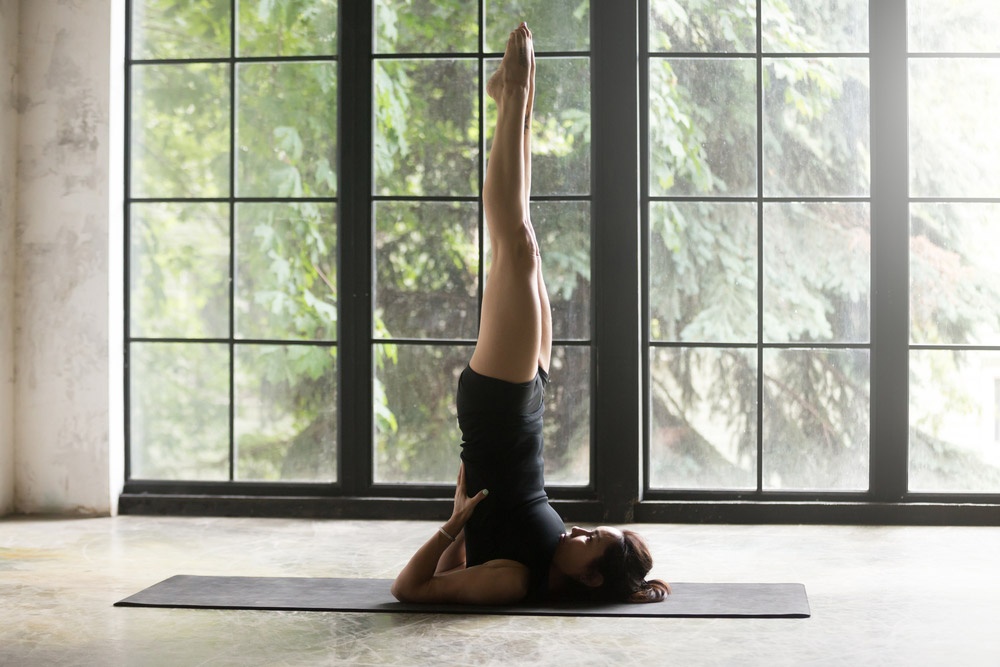
Similar to shoulder stand, plow pose stimulates the thyroid and increases circulation to that area of the neck. However, yogis who are overweight or have larger breasts may find this pose too difficult or may struggle to breathe properly. If this happens, slowly lower out of the pose and do a modified version with your feet simply propped up against a wall with a pillow or bolster under your head.
In the modified version, your legs should be straight up with your bottom touching the base of the wall.
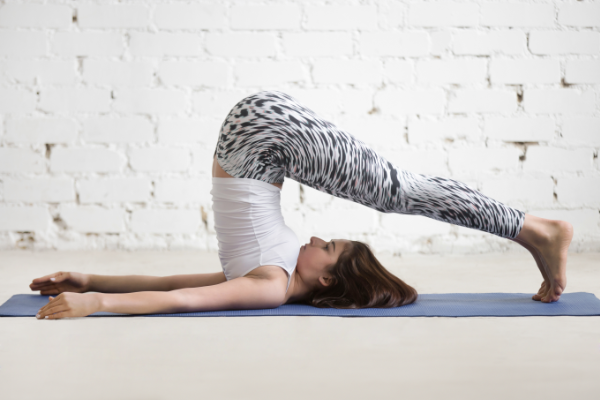
Fish pose is an excellent pose for beginners and helps stretch out the muscles of the neck and the thyroid gland, allowing blood to circulate to and through it more easily.
This pose can also be practiced with or without blocks, as seen in the images below! For yogis who do not have a lot of flexibility in their back and shoulders, blocks will make this pose more comfortable and passive versus active.
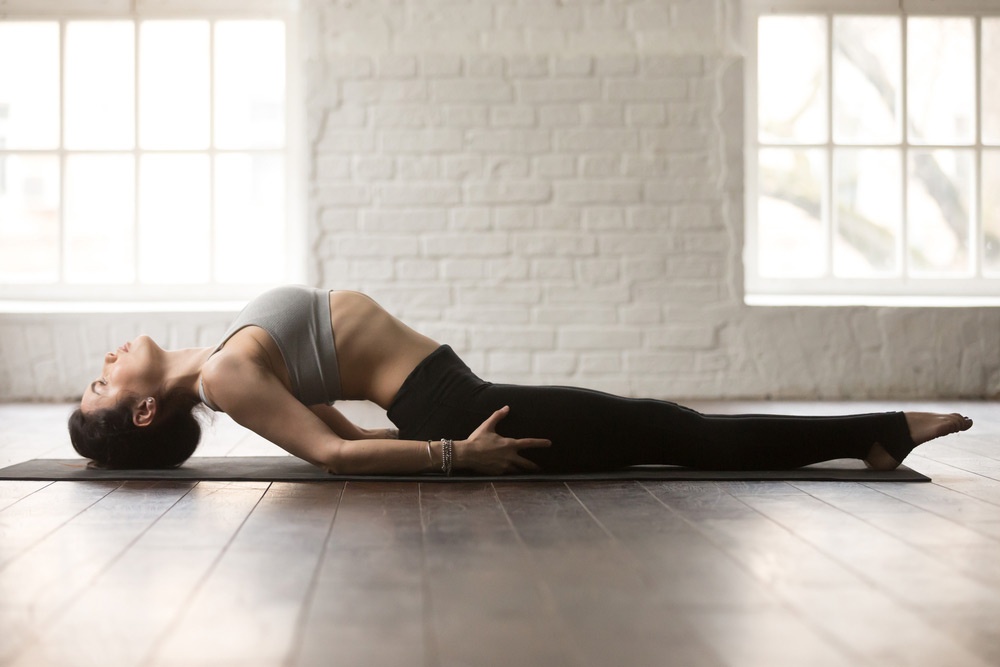
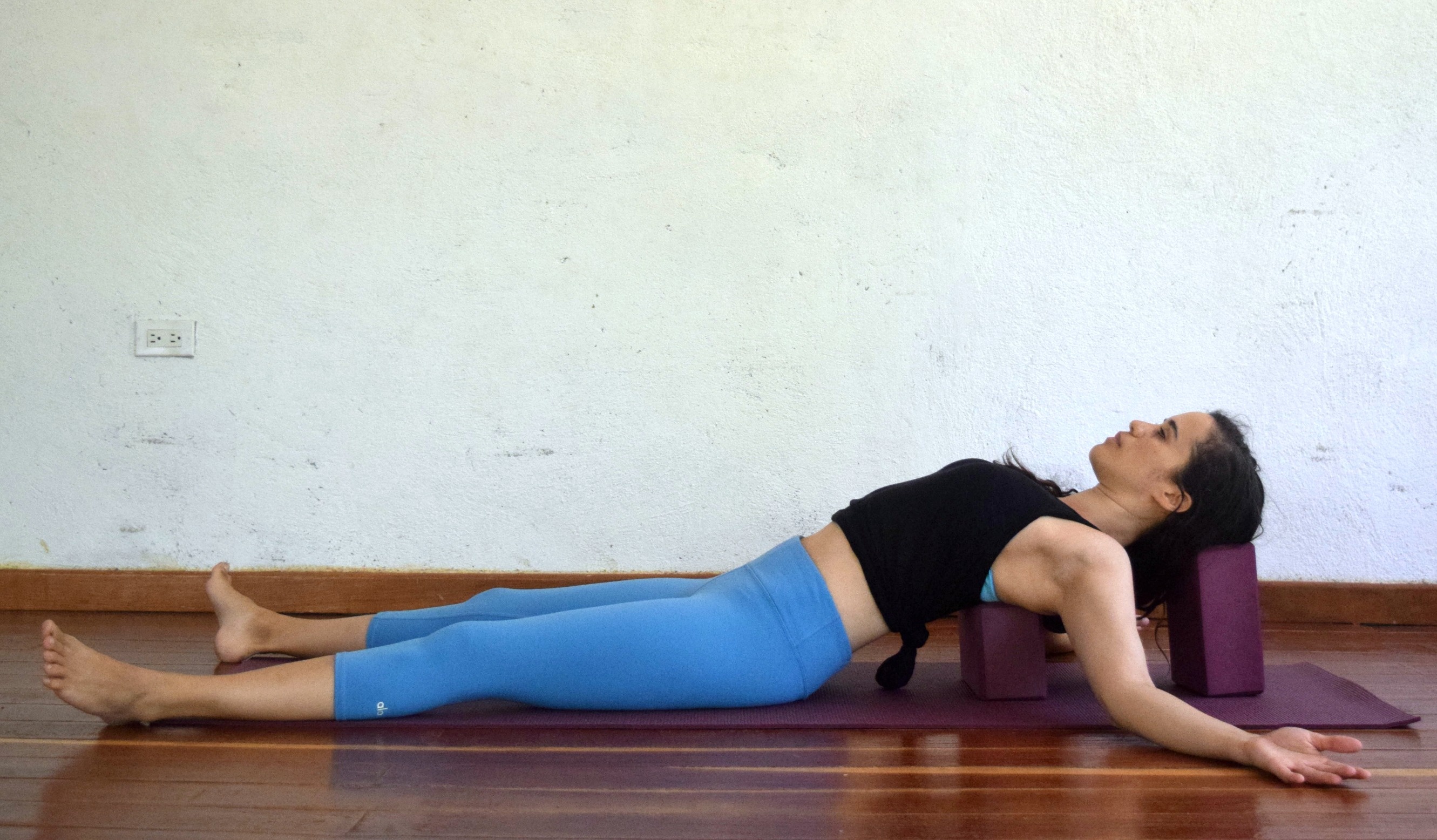
Bridge pose is also helpful for stretching out the neck muscles and improving circulation to the thyroid gland. Additionally, this pose is effective in relieving headaches and treating asthma!
Similarly to other poses mentioned above, be mindful of your head and neck placement in this pose. It is not advisable to turn your head while performing bridge pose. Also, if you’re unable to reach your heels, simply reach as far as you are comfortably able to or clasp your hands together underneath you.
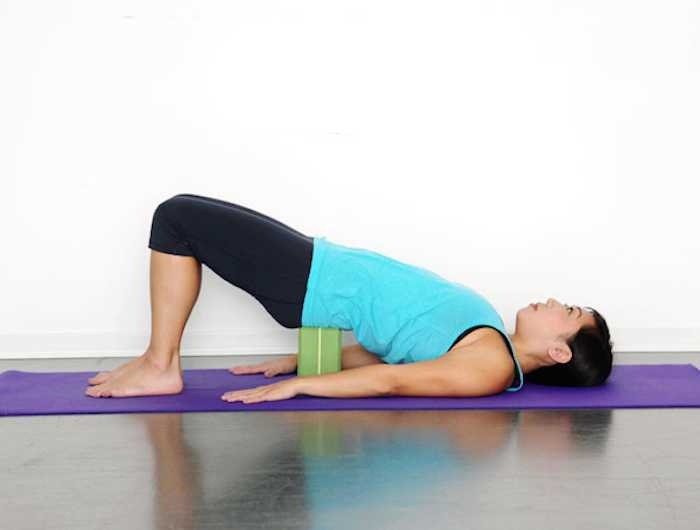
This pose is an excellent way to stretch your throat, abdominal muscles, quads, and lower back! Almost any pose that opens up the throat and brings better circulation to the thyroid gland and surrounding tissues is helpful for relieving symptoms of hypo- or hyperthyroidism.
If you’re not familiar with some or all of these poses, be sure to check out my class, Therapeutic Yoga for Thyroid on My Yoga Teacher!
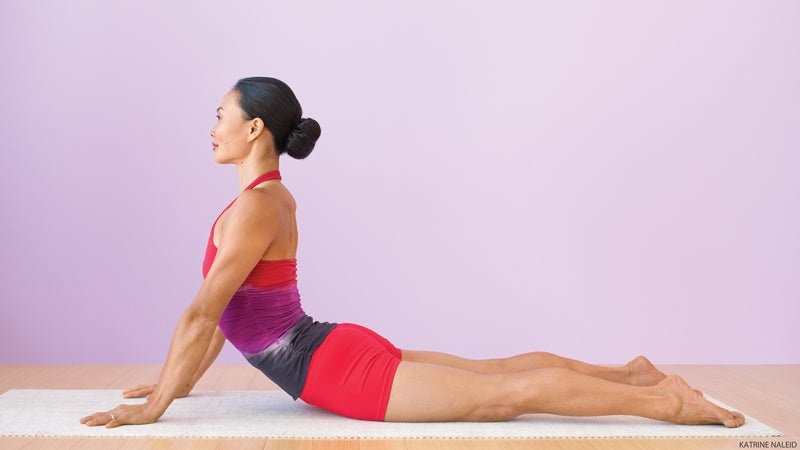
While this pose may be too difficult for beginner yogis, it can be modified and is very beneficial for the thyroid and pituitary glands. It also strengthens the arms, shoulders, and abdominal muscles. This pose not only lengthens the neck muscles around the thyroid but also allows for better circulation to that area.
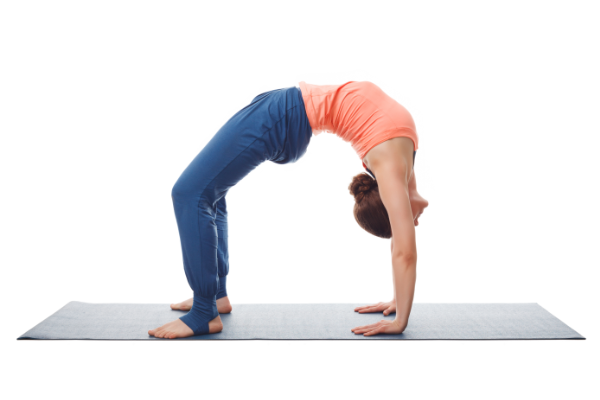
Supported headstand pose is an advanced move, so if you’re unfamiliar with it, maybe skip this one. However, if you’re able to safely perform this pose, it is incredibly helpful! It acts directly on the thyroid gland.
This pose helps bring blood flow to the heart as well as stimulating the brain’s pituitary and pineal glands.
Supported headstand pose should not be performed without prior yoga experience and should be performed under the supervision of an experienced teacher for the first time.
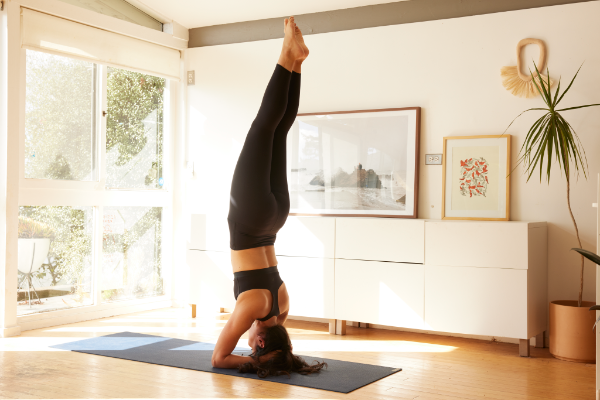
While there are many signs of thyroid dysfunction that can look like symptoms of other things, I thought I’d give you some surefire signs that you might want to see your doctor and have your thyroid tested!
So here you go:
If any of these are troubling you, please reach out to your doctor! And remember that yoga is an excellent complement to traditional medicine for thyroid issues.
If you haven’t checked out My Yoga Teacher yet, I hope you’ll grab your 2-week free trial and try out as many of the 35+ different group yoga classes they offer! Including mine! It’s such an amazing network of yogis from all walks of life, all fitness levels. And most of the yoga instructors are experienced experts from the birthplace of yoga, India!
Join us on the mat!

Receive personalized guidance tailored to your unique fitness goals, live with a dedicated coach—no credit card required.